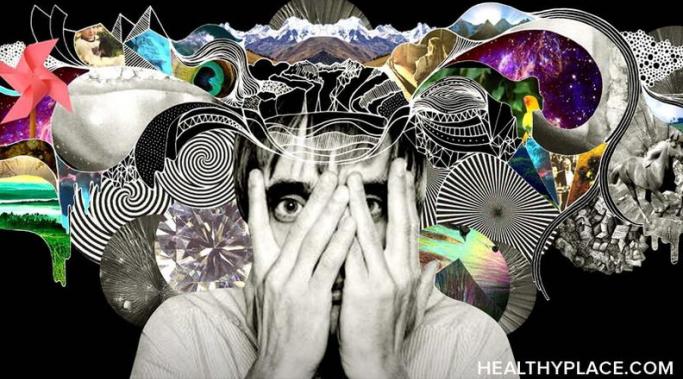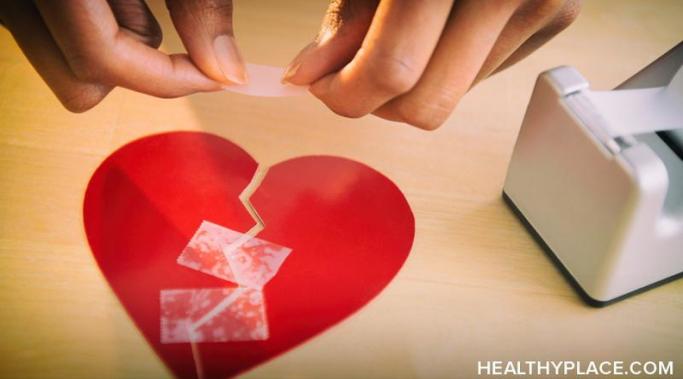I have been seeing a psychiatrist for about 14 years now. There have been many different individuals, but I’ve been seeing one or another for most of that time.
And in all of that time I’ve noticed something – I get anxious before a psychiatric appointment. Even though I’ve been doing this seemingly forever, when it actually comes time to sit in the waiting room and then be taken to the tiny room with the dingy paint, I feel anxious.
Coping
I have not done a book review on here but that’s because I don’t tend to read help books on bipolar disorder – I write that material, not read it. But recently one such book has landed in my possession and I’d like to take the time to recommend it: Loving Someone with Bipolar Disorder – Understanding and Helping Your Partner (second edition) by Julie A. Fast and John D. Preston, PsyD.
People often ask me how to help others with bipolar disorder and I believe this book could help partners answer that question.
This article is a continuation from Multi-Polar - The Many Moods of Bipolar Disorder part one.
Bipolar is a disease that takes over your brain – well, parts of your brain anyway – and these affected parts of your brain change your psychology right along with them. So once when you felt “normal” or let’s say, average, you now feel utterly destroyed. Your emotions are altered thanks to the attack on your brain.
And what’s worse about this is that bipolar or depression fundamentally changes who you think you are at that moment. If you used to be a fun-loving, happy-go-lucky sort, in a depression, nothing could be farther from the truth. When manic, all your thoughtful, careful ways become things of the past. You can barely identify with the person you were pre-mood.
And perhaps even worse than all that is that some part of you sees this dissonance. You know that who you are at that moment isn’t who you really are. It’s like someone else, a crazy person, moved right into your head and body and coopted your life. Bipolar snatched your body and brain.
As I wrote last time, I consider about 95% of the time we spend feeling guilty wasted time. I have suggested that guilt does no one any good and instead of sitting around feeling guilty, we should try to make amends for whatever it is about which we feel guilty.
But how does one make amends?
Guilt – noun – a feeling of responsibility or remorse for some offense, crime, wrong, etc., whether real or imagined.
And people with a mental illness feel guilt over a lot of things. I hear from people every day who feel guilty about their illness, what they’ve done, what they haven’t done and how their mental illness and their behaviors due to it affect others (Feeling Guilty Because You Have a Mental Illness).
But mostly I consider guilt a waste of time in mental illness recovery.
I recently returned from a trip to Chicago. I was at the National Council’s Conference on Addiction and Behavioral Health. I had a great time and met lots of great people (including our own Randye Kaye, author of Mental Illness in the Family here at HealthyPlace).
But the conference was in Chicago, and while a great city, it did mean a day’s worth of travel and two time zone changes to get there. And travel has been known to really take it out of me.
But I have learned tips for navigating travel with less disruption to my bipolar disorder.
Stigma is something that can be seen outwardly like when a family member avoids you due to your depression or you’re passed over for a promotion because your coworkers discovered you’re diagnosed with schizophrenia. It’s also seen in public perceptions as noted in the Surgeon’s General report where 60% of people felt like people with schizophrenia behaved violently.
But the biggest danger of mental health stigma is when it’s felt inwardly. Because no matter how unfairly people treat you ourwardly, it’s nothing compared to the effects of feeling the stigma inside.
I am single. I have been single for a long time, actually. It’s OK; I don’t mind it that way. I have my dalliances, I have my friends and I have my cats. It’s a touch stereotypical, but it’s my life.
I have, however, fallen victim to an irrational line of thought from time to time – I really want to couple. Some of this desire is completely rational. It’s normal to want to spend Sundays in bed with someone and have someone to share orange juice with in the mornings.
What isn’t rational, though, is the idea that a relationship will make me “happy,” will make me “better.” In times when bipolar feels it’s darkest, more than anything I just want someone to hold onto even if holding onto someone doesn’t work.
Holding onto someone, however special, will not cure bipolar disorder.
I’m sitting on my red, plush couch in my living room and I have started crying. Tears well in my eyes at first while I try to convince them not to roll down my face and splash the back of my glasses. As usual, the tears don’t listen and soon my cheeks and lips and chin are wet with saline. I take off my glasses and put them on the wenge coffee table and my head falls into my hands. Loud crying now, choking sobs wrack my body as I feel the pain of illness that I had been pushing away for so long beat me once again.
And I wonder – will it get better?
![MP900444553[1]](/sites/default/files/styles/blog_listing/public/uploads/2012/07/MP9004445531.jpg?itok=GnVkuGu7)





![MP900432825[1]](/sites/default/files/styles/blog_listing/public/uploads/2012/04/MP9004328251-1024x685.jpg?itok=Qp2qZbBY)
![MP900442827[1]](/sites/default/files/styles/blog_listing/public/uploads/2012/04/MP9004428271.jpg?itok=jPcAEaSI)
